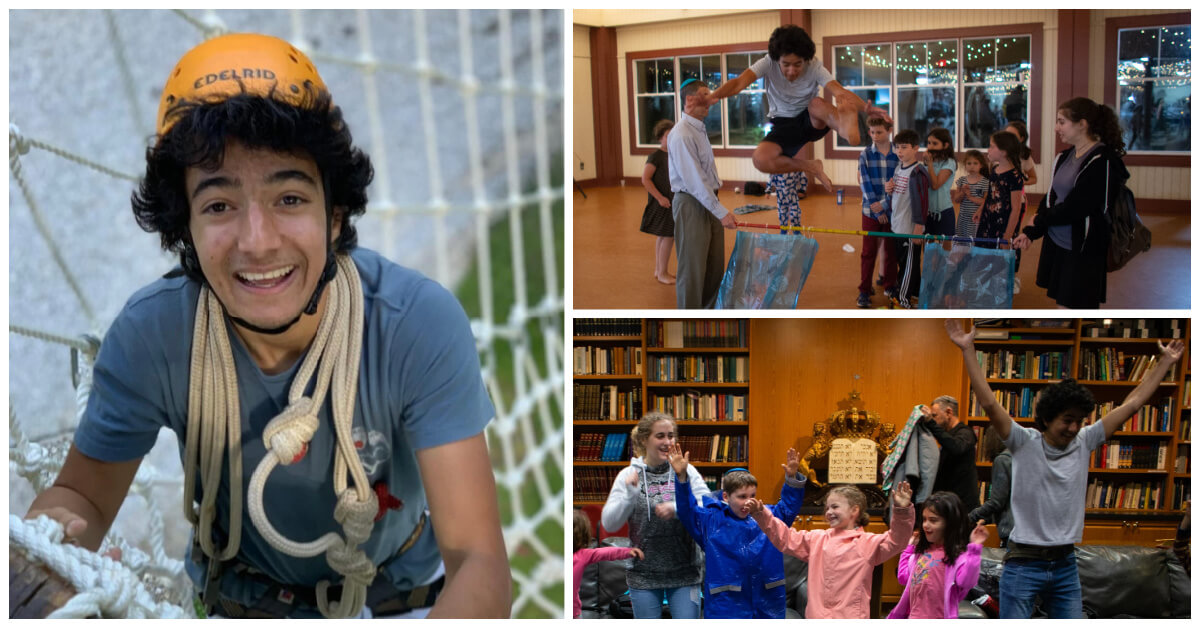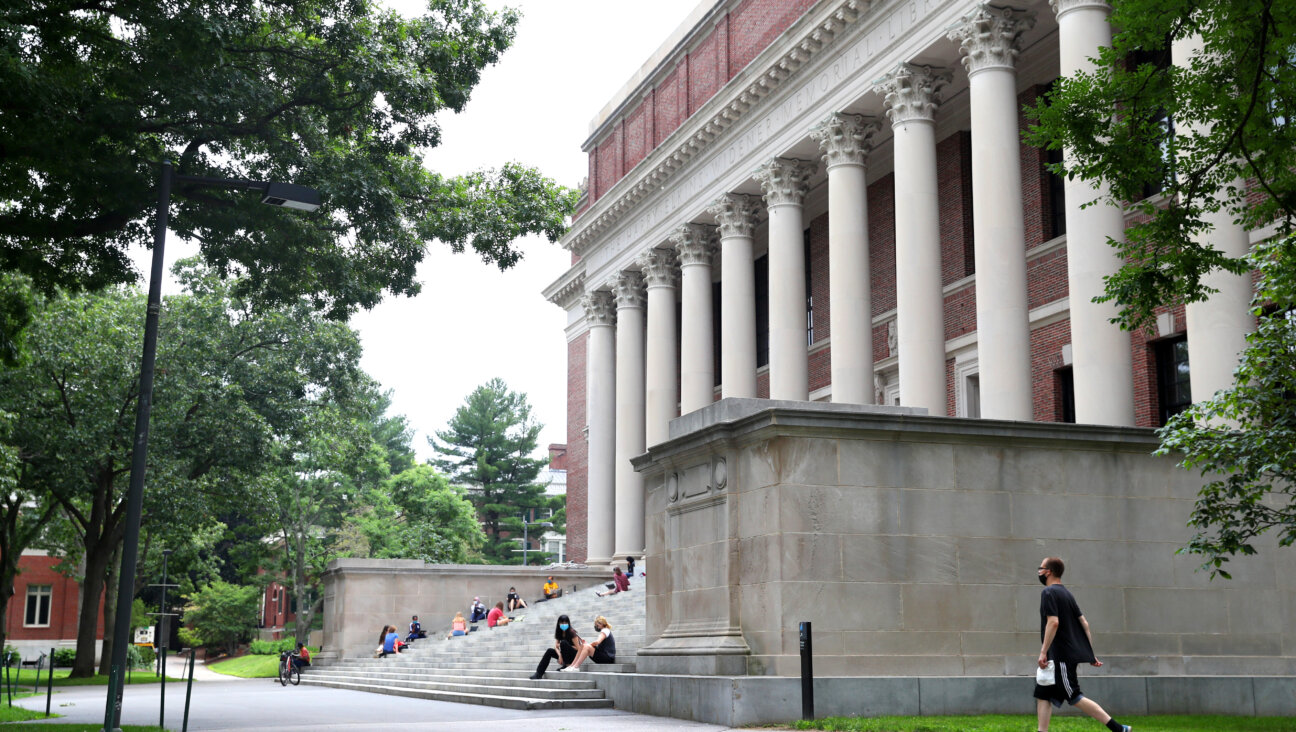Yiddishists: The Next Generation Takes the Reins
It’s been more than three quarters of a century since young intellectuals were voicing their Yiddish-inflected ideas in the parks, cafés and tenements of lower Manhattan. But the days of the Yiddish intelligentsia are still rolling for 24-year-old Menachem Yankl Ejdelman, who is the newly appointed leader of Yugntruf, a worldwide organization of young Yiddish speakers and learners. “We attract all types of people, from high-school students to young people with day jobs. Many of the people who come to our events love languages,” he said.
Yugntruf is indeed a good fit for the linguistic type. Ejdelman’s grandfather, the late Yiddish linguist Mordkhe Schaechter, founded the New York-based organization in 1964, 17 years after he began collecting information for the archives of the YIVO Institute for Jewish Research from Holocaust survivors in displaced persons camps in Austria. (Ejdelman’s mother and Mordkhe Schaechter’s daugher is Rukhl Schaechter, news editor of the Forverts.) From the inception of Yugntruf, Schaechter drew in interested young people to ensure that the Yiddish language remained vibrant for subsequent generations.
Now, 44 years after its founding, Yugntruf is undergoing what Ejdelman calls “a revolution.” The changes began when Myra Mniewski led the organization from 2004 to 2007. “Except for a few active members in their 50s, the older folks didn’t seem to participate with much energy,” Mniewski said. “Since Yugntruf was conceived as a youth organization, the young people were enthusiastic about participating. I felt it was time to hand them the reins.” In the past six months, many of the older board members resigned. “We feel that the organization is for the young, and young people bring initiative,” Ejdelman said. “Before, a lot of people didn’t feel comfortable speaking out.”
With Yiddishists, greenhorns and native speakers packing an international mailing list of about 1,000 people, the organization is confronting head-on the possibility, and evidence, of growth. Yungtruf’s office, formerly located in a book-jammed space on Manhattan’s Upper West Side, moved to the Workmen’s Circle/Arbeter Ring building in midtown (the same building in which this newspaper is published) a few years ago. Yungtruf received a bequest in 2005 that enabled it to rent office space and purchase computers. The organization continues to hold bimonthly Svives, social gatherings where only Yiddish is spoken, as well as larger events such as Yiddish Break, a weekend gathering of young Yiddish speakers on the campus of Brandeis University in Waltham, Mass. In 2006, during the annual Yiddish Tog event — a daylong conference focused on an intellectual topic — Mniewski organized a folklore project where Yugntruf members interviewed native speakers and recorded their stories. The organization also publishes a semi-annual literary journal.
An event in the works will commemorate the 100th anniversary of the Czernowitz Conference for the Yiddish Language, a meeting where Eastern European Jewish intellectuals discussed, for the first time, a vision for the development of Yiddish culture. Among the 1908 conference topics was “Jewish youth and the Yiddish language.” This year, Yugntruf will continue this dialogue. “I see things happening on a national basis,” Ejdelman said. “With Hillel’s strategy in mind, I want Yugntruf to have a larger role on college campuses… all over the country.”
Yugntruf began as, and remains, an apolitical organization, but it is steeped in Yiddishism, an ideology formed in the 19th century that sought to identify Jews not exclusively by land or religion but by the Yiddish language, as well. The organization is not associated with the left.
The first event this year took place during the third week of January, corralling members for a dairy meal and conversation. “Yiddish skipped the middle generation. The parents of native speakers didn’t learn the language,” said Arun Avrum Viswanath, a high-school student and member of the group (and Ejdelman’s cousin). “The drive to learn about family history has become more trendy. We’ve seen it in the past year; there is going to be a lot more. We are looking for a community, not just a language.”
The Forward is free to read, but it isn’t free to produce

I hope you appreciated this article. Before you go, I’d like to ask you to please support the Forward.
Now more than ever, American Jews need independent news they can trust, with reporting driven by truth, not ideology. We serve you, not any ideological agenda.
At a time when other newsrooms are closing or cutting back, the Forward has removed its paywall and invested additional resources to report on the ground from Israel and around the U.S. on the impact of the war, rising antisemitism and polarized discourse.
This is a great time to support independent Jewish journalism you rely on. Make a Passover gift today!
— Rachel Fishman Feddersen, Publisher and CEO
Most Popular
- 1

News Student protesters being deported are not ‘martyrs and heroes,’ says former antisemitism envoy
- 2

News Who is Alan Garber, the Jewish Harvard president who stood up to Trump over antisemitism?
- 3

Fast Forward Suspected arsonist intended to beat Gov. Josh Shapiro with a sledgehammer, investigators say
- 4

Politics Meet America’s potential first Jewish second family: Josh Shapiro, Lori, and their 4 kids
In Case You Missed It
-
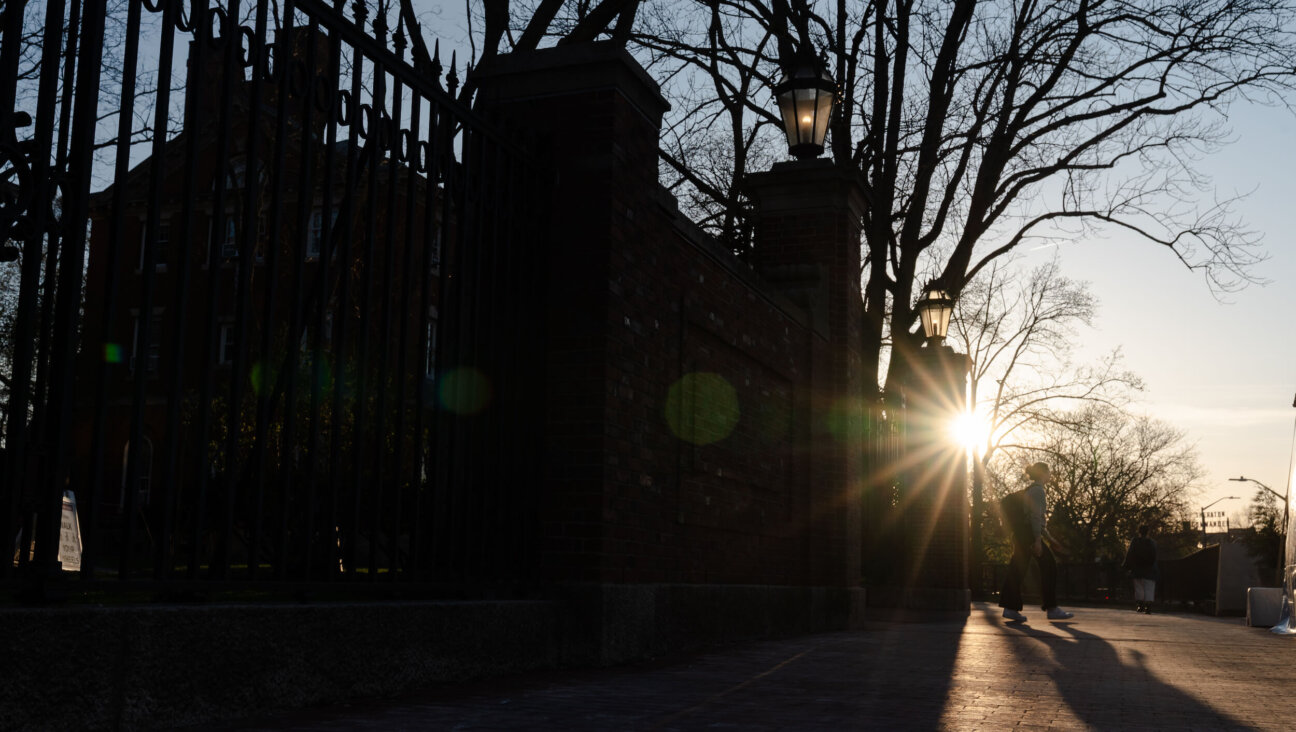
Opinion Why can Harvard stand up to Trump? Because it didn’t give in to pro-Palestinian student protests
-
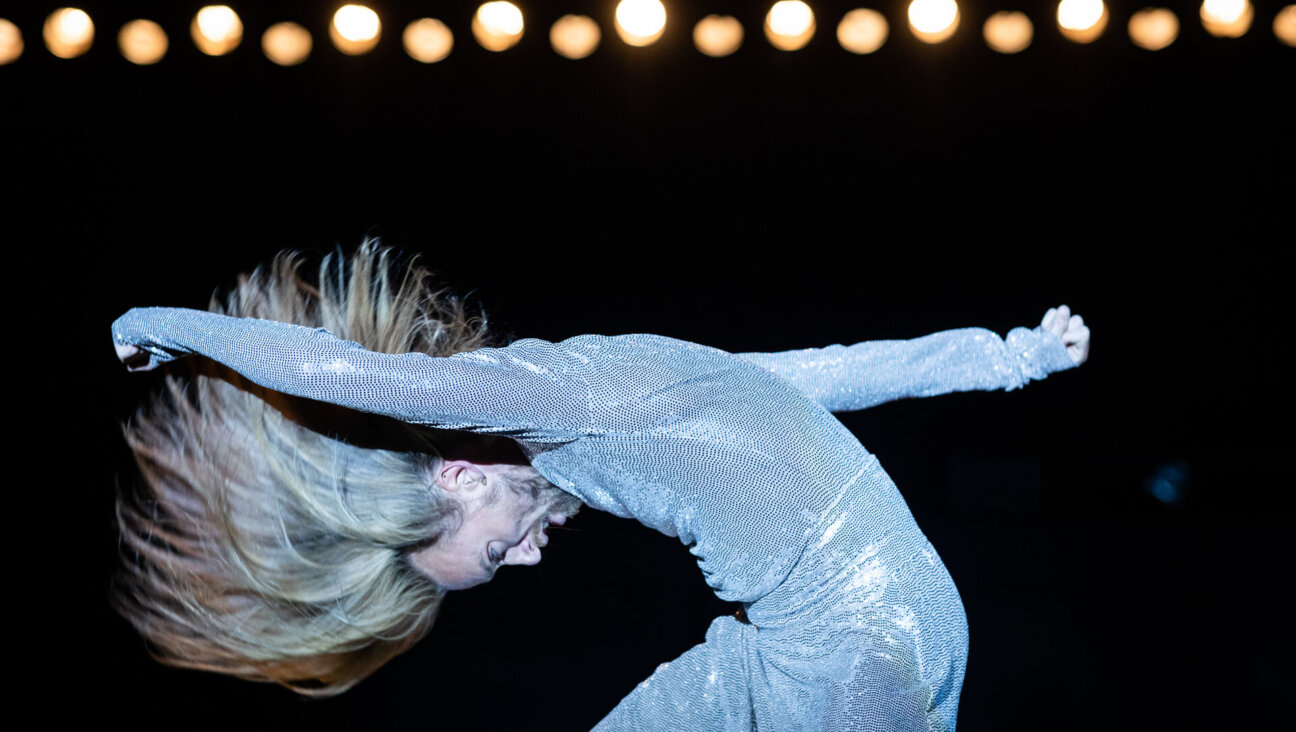
Culture How an Israeli dance company shaped a Catholic school boy’s life
-
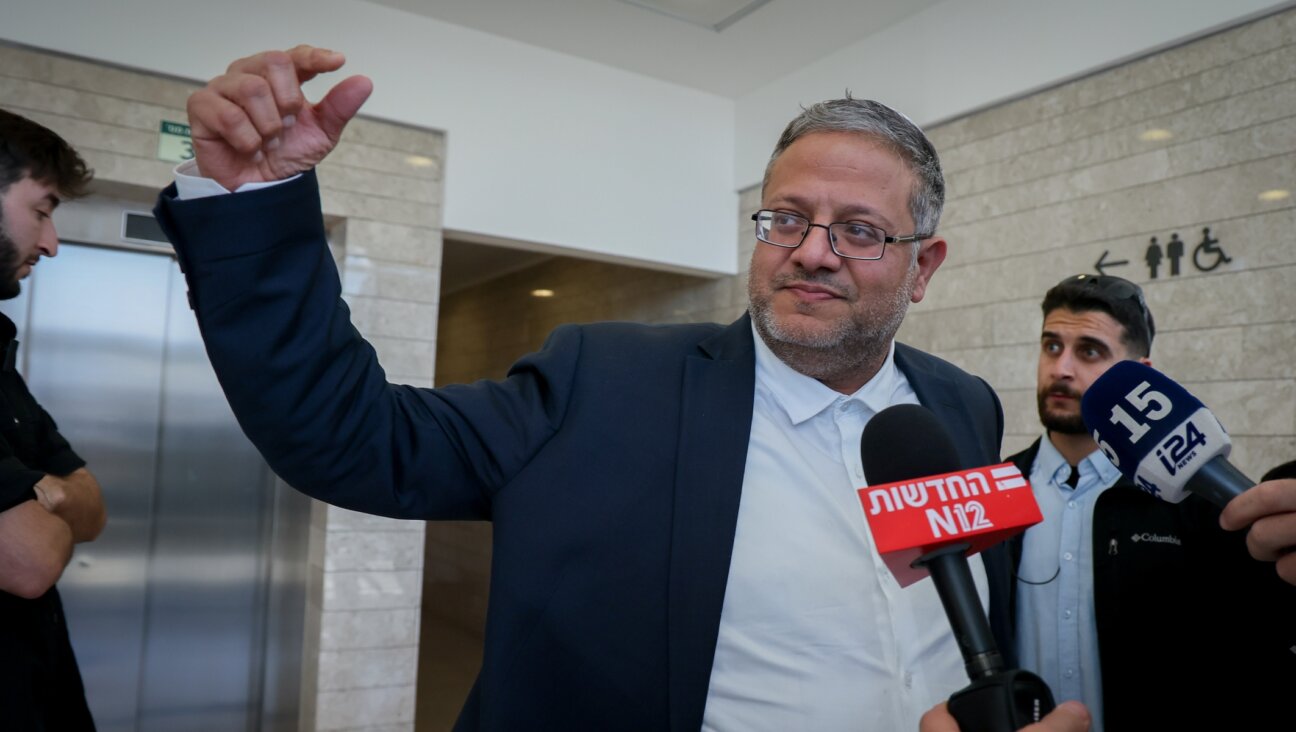
Fast Forward Brooklyn event with Itamar Ben-Gvir cancelled days before Israeli far-right minister’s US trip
-
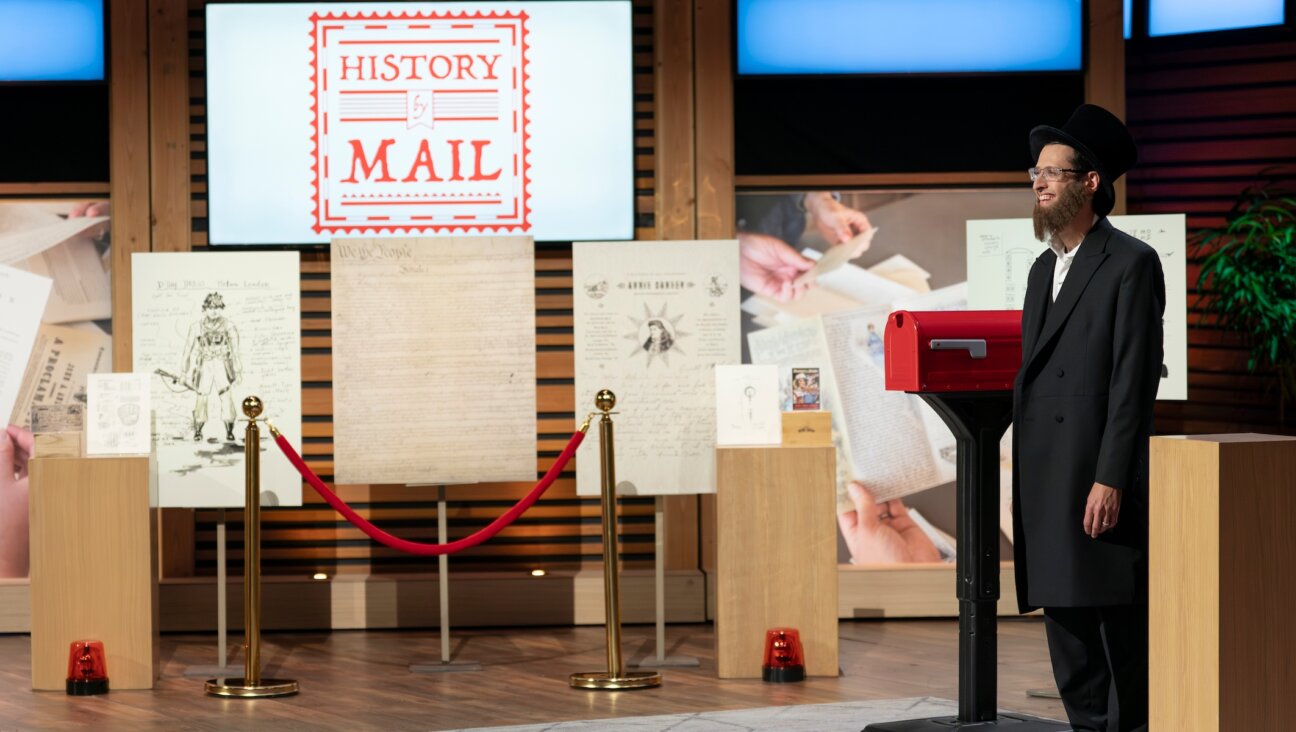
Culture How Abraham Lincoln in a kippah wound up making a $250,000 deal on ‘Shark Tank’
-
Shop the Forward Store
100% of profits support our journalism
Republish This Story
Please read before republishing
We’re happy to make this story available to republish for free, unless it originated with JTA, Haaretz or another publication (as indicated on the article) and as long as you follow our guidelines.
You must comply with the following:
- Credit the Forward
- Retain our pixel
- Preserve our canonical link in Google search
- Add a noindex tag in Google search
See our full guidelines for more information, and this guide for detail about canonical URLs.
To republish, copy the HTML by clicking on the yellow button to the right; it includes our tracking pixel, all paragraph styles and hyperlinks, the author byline and credit to the Forward. It does not include images; to avoid copyright violations, you must add them manually, following our guidelines. Please email us at [email protected], subject line “republish,” with any questions or to let us know what stories you’re picking up.





